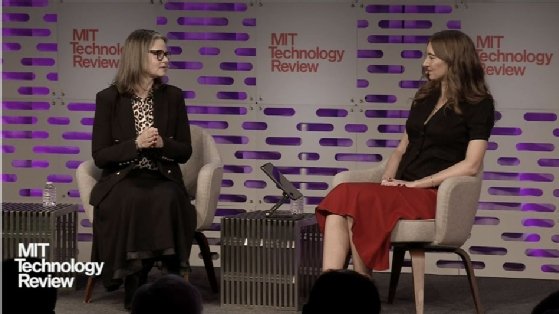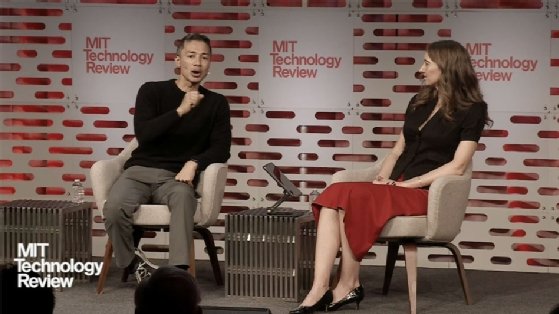
your123 - stock.adobe.com
Time to promote AI agents from "assistants to associates"?
Are our humble AI agents turning into valuable AI associates? Learn about the growth of AI agents from experts at this year's EmTech MIT conference.
CAMBRIDGE, Mass. -- The second day of EmTech MIT 2025, hosted by MIT Technology Review, kicked off with a discussion of AI agents -- or, what Amy Nordrum, executive editor of MIT Technology Review, called our new "synthetic friendships."
Researchers and critics use the term synthetic friendship to describe the phenomenon in which humans create meaningful relationships with machines and AI companions. Statistics on human-AI relationships abound, and one thing is certain: as AI grew from conversational large language models to more autonomous AI agents, adoption followed suit. Widespread adoption has signaled greater trust in these agents to the point where organizations have developed teams of agents managed by a single human employee.
AI is here to stay, and its effect on industries worldwide is undeniable. From the creation of frontier firms, where organizations centralize AI into their core operations, to AI agents as the newest specialized employees, agentic AI continues to change the way humans think about and approach work. Is it time to treat these assistants as valuable associates?
What are AI agents?
While speaking during her session, "The Agentic Workday," Colette Stallbaumer, co-founder of Microsoft Worklab and general manager of Microsoft 365 Copilot, provided attendees with context on agentic AI.
"The exact definition is really an AI that can take on increasingly complex tasks … increasingly autonomously," Stallbaumer said. "It's degrees of complexity. Is it giving you a quick answer, or is it doing multi-step, complex thinking and reasoning? I think what we're seeing right now is the whole spectrum."
From customer service to streamlining research and even managing entire supply chains, the versatility of AI agents is evident to industry leaders.
"82% of leaders told us that 2025 is the year they're getting really serious about AI at the heart of operations," Stallbaumer said, citing Microsoft's Work Trend Index study. "We do see a shift in how companies are thinking about this."
The rise of frontier firms
The Microsoft study also indicated a new type of organization on the rise -- the frontier firm.
"These are firms for which AI is not an add-on; it is the heart of how they operate," Stallbaumer said. "It is the business strategy."
These frontier firms are "structured around on-demand intelligence and powered by 'hybrid' teams of humans and agents," according to the study. These companies can scale quickly, operate with agility and generate value faster, the report added. Microsoft said it expects every organization to start the journey to become a frontier firm within the next two to five years.

If these firms are only beginning to emerge, why is there such optimism in the growth of the frontier firm model? Stallbaumer said Microsoft found that people at these firms were more satisfied with their approach to work than those at non-frontier firms. She gave the example of a frontier firm ad agency that could provide data around an advertising strategy to employees on day one through the power of AI.
"You don't have to really train people up in that, right? They've got that expertise from day one, so that puts them ahead," she said. "They can do things with much smaller, leaner teams that would otherwise have taken many more people."
For organizations interested in becoming one of these frontier firms, Microsoft advised the following three-phase method:
- Human with assistant. Employees are paired with an AI assistant to help increase productivity.
- Human-agent teams. AI agents are treated as "digital colleagues" and take on tasks as directed.
- Human-led, agent-operated. Teams of AI agents, directed by a human employee, execute business functions and workflows.
AI agents as specialized employees
Stallbaumer also mentioned some of the progress Microsoft has made in creating specialized AI agents. Like their human counterparts, AI agents can be specialized to assist in specific industries or professions. At this year's EmTech MIT conference, Stallbaumer spoke about researcher- and analysis-specific agents.
"[With] Researcher, it's like having a PhD-level research assistant on your team," Stallbaumer said.
Microsoft launched its Researcher and Analyst reasoning agents earlier this year. These tools exist to "analyze vast amounts of information with secure, compliant access to your work data … and the web to deliver highly skilled expertise on demand," according to the company.
For example, Stallbaumer said the agents can help write strategy papers or research specific topics. "Because [these agents are] built with our advanced reasoning models, they're able to take on very complex tasks," she said.
The market seems hungry for agentic AI-based research assistance. This year, AI search engine Consensus launched its own AI research agent, Consensus Deep Search. Consensus describes Deep Search as "a research agent that conducts full literature reviews across 200 million scientific papers in two minutes."
As technology like this continues to improve, we will see a significant shift in how we work and navigate day-to-day tasks, such as using the internet.
The evolving internet
In his session "From AI Assistants to Associates," Sudheesh Nair, co-founder and CEO of enterprise web agent TinyFish, introduced his new product and explained how the internet will evolve with the increased development of agentic capabilities.
"We definitely don't think the internet will continue the way it is because [agentic AI] is a massive disruption," Nair said.

He cited Amazon's cease-and-desist order to prevent Perplexity from using its AI browser to shop for customers on Amazon's online marketplace. Perplexity claimed it's only trying to make shopping easier for consumers, while Amazon insisted that third parties like Perplexity "should respect service provider decisions whether or not to participate." However, Nair thinks Amazon's decision -- and likely the decision of many major online retailers -- is rooted in protecting advertising opportunities.
"When [a customer's] agents are shopping, [that customer] will not see the ads [Amazon is] selling," he explained.
While this knee-jerk reaction to protecting advertising opportunities is understandable, Nair said he thinks this reactionary perspective is a flaw.
"This cannot sustain itself because [agentic browsing] is an opportunity," he said. "Imagine websites all becoming MCP endpoints, and the webpage and site map don't matter. What matters is the MCP endpoint that basically says, 'Come to me and ask me what you want to know or tell me what you want to do.'"
This more "direct" version of traditional browsing, which Nair compared to aimless wandering, could entirely disrupt how companies approach commercialization. While he's unsure what the future internet will look like, it's clear this is another facet of human workflows that will be transformed by the growing power of AI.
"The idea of searching and browsing and crawling and scraping -- it sounds archaic," he said. "It's like hunting with arrows and bows."
Everett Bishop is assistant site editor for Informa TechTarget's AI & Emerging Tech group. He graduated from the University of New Haven in 2019.






